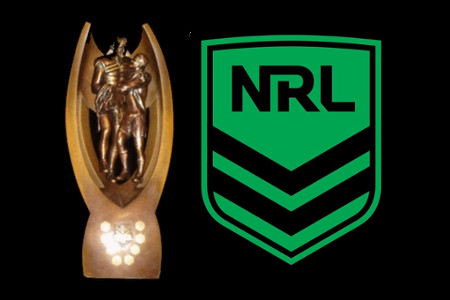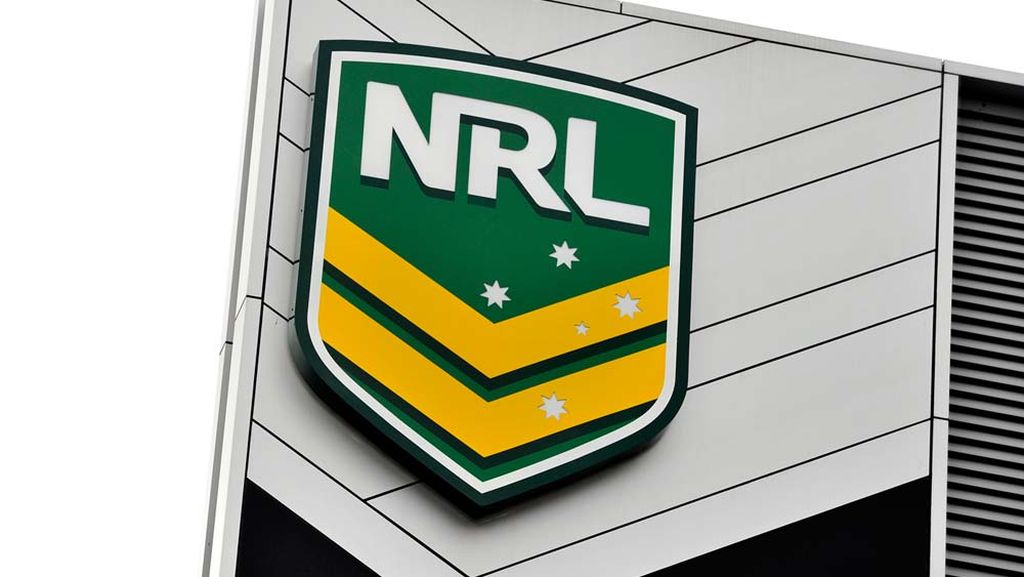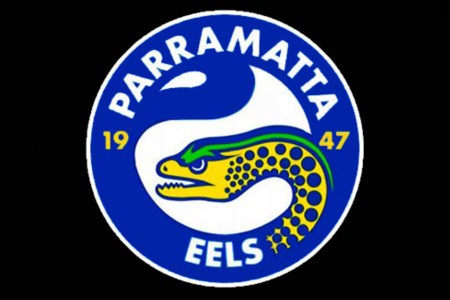Dally Messenger
Born: Herbert Henry Messenger on 12/4/1883 at Balmain, New South Wales
Died: 24/11/1959 at Gunnedah, New South Wales
It was just 20 hours before the first game of professional Rugby was to be played in Australia that Herbert Henry “Dally” Messenger agreed to join, making him the face of what would become Rugby League and the star attraction to lure fans and fellow players alike to the new game.
Born on April 12, 1883, young Dally quickly began to show his natural ability as an athlete across many sports, particularly rowing, cricket, sailing and Rugby Union.
Shortly after his 18th birthday, Dally began playing Rugby Union for the Double Bay Warrigals, where he quickly established himself as a star. By 1905, after having rejected several offers in past seasons, Messenger finally agreed to move up to second grade with Eastern Suburbs, where he made two first grade appearances that year.
The following season he was a regular first grader, playing initially in the halves before switching to his preferred centre position in his debut for NSW. Messenger’s cheeky skills, speed, agility and elusiveness saw him rapidly become a drawcard for the Rugby Union.
A telegram from New Zealand Rugby star George Smith was received by former NSW representative player Peter Moir, who had long been sympathetic to the calls for professionalism. The telegram sought to play 3 games between a professional New Zealand side and a professional team in Australia. Moir promptly responded, confirming that a team would be ready.
The men behind the birth of Rugby League in Australia, James Giltinan, Henry Hoyle and Test cricket star Victor Trumper, set about to snare Dally Messenger, knowing that his name would draw elite players to their professional game.
In August 1907, a tug-of-war to secure Messenger’s services and loyalty appeared to take place between the Rugby Union and the Rugby League. On August 3, 1907, Messenger was finally picked to make his debut for the Wallabies against the all-powerful All Blacks. Messenger scored all 5 of Australia’s points in the second test loss at Brisbane.
The next week, he again lined up for the Wallabies against New Zealand, where Australia held the All-Blacks to a 5 all draw.
With the New Zealand professional side now on their ship and on their way to Sydney, Giltinan and Hoyle still hadn’t put their proposal to Messenger, although they did have a small group of players ready for the upcoming matches.
On the day before the first professional Rugby match in Australia, Giltinan and Trumper visited Dally at his home and put their proposal to him, but the nonchalant Messenger couldn’t decide whether to change codes or not, so he told the two officials to ask his mother.
Giltinan explained how the Rugby League would operate to Mrs Messenger, whose biggest concern was for Dally’s health. This obviously played into the hands of the League men, whose sole purpose was to cover the players for injuries and down time. She eventually gave Dally her blessing to switch codes after asking plenty of questions.
The very next day, Messenger took his place in the first ever game of professional Rugby, in front of 20,000 people. The NSW side held their own against an impressive New Zealand side, dubbed the All Golds by the media, however lost 12-8.
After the match Messenger, along with the 14 other NSW players were handed life bans by the Rugby Union, with another 7 receiving the same after appearing in the next two games.
After the series was completed, Albert Baskerville, manager of the All Golds, invited Messenger to join his impressive squad on their journey to Northern England. The offer that was too good to refuse for Dally, who would become be a drawcard for Baskerville in England. At the conclusion of the tour, Messenger had earned £200.
Upon returning to Australia in April 1908, the NSWRL had been established, with 8 teams (Glebe, Newtown, Balmain, Eastern Suburbs, South Sydney, North Sydney and Western Suburbs) and 2 weeks later, Cumberland also joined the competition.
Messenger’s star power was exploited as far and wide as possible by the Rugby League. After playing 27 games for New Zealand in England, he played 2 more for them against Newcastle and Northern Districts, before playing in 11 representative fixtures against New Zealand, the visiting Maori outfit and Queensland. In that time he was selected for NSW, Queensland, Metropolis and the Australian test side. He also managed 2 club games for Eastern Suburbs.
And then he was back on the boat to England as part of the inaugural Kangaroo touring squad. He played in 33 games on the tour which ended in March 1909. By the time he got home, Dally was understandably weary and decided to sit out the 1909 season, although there were occasional mentions that he was in fact injured.
The game struggled to maintain its appeal without Messenger, but a daring coup lead by new board members of the NSWRL saw 17 members of the Rugby Union Wallabies side accept payment to play in a 3 match series against the Kangaroo’s and in doing so, became Rugby League players, as they were promptly banned by the Rugby Union. With such an exciting contest about to happen, Dally was coaxed out of his break to play in the 3 matches for the Kangaroo’s. The Wallabies won the series 2-1.
A fourth game was hastily organised for the following week, which the Kangaroo’s won despite Messenger not playing.
Dally returned to the playing field in 1910, playing 10 rep games and 10 club games, leaving Sydney only once, for the second test against the visiting Great Britain side.
In 1911, Dally had an amazing year, setting a record for most points in a season, which lasted until Dave Brown’s spectacular 1935 season. Dally amassed 273 points in 23 games and played in Easts first premiership winning side. He was asked to be a part of the 1911-12 Kangaroo tour to England, but he declined. It was reported that fans in England had travelled long distances to see Messenger play on the tour only to find he wasn’t there.
Messenger effectively retired from playing Test football in 1911 so as to spend time with his wife and helping her run the Albion Hotel which she owned, as well as raising their family. At the end of the 1913 season, aged just 30, he retired. In 1917, he played one last game, an exhibition to raise funds for the war effort. Messenger kicked 2 goals for the Kangaroo’s in their 20-13 loss to NSW in front of 18,000 fans.
In 1916 Dally became the father of a son, who was named after him. However, after the murder of gangster ‘Snowy’ Fullerton at their hotel, Dally and his wife and son moved to the more peaceful Buderim in Queensland, where Dally worked on a banana plantation. This proved to be enjoyable but ultimately expensive and after a year, he left Queensland and moved to Manilla, near Tamworth in NSW, where he and his wife ran the Royal Hotel.
Sadly, Dally’s wife died from the influenza epidemic that struck Australia in 1919. Dally then returned to Sydney with his near 4 year old son. In 1922 he remarried and moved to Double Bay while working as a carpenter.
In 1951 his second wife passed away and Dally split his time living at the NSW Leagues Club and with his son. He spent his last years making many routine visits to schools where he helped kids learn the skills of Rugby League. One such tour in 1959 saw him travel to Gunnedah. While in his bed one night there, he suffered a heart attack and died a few days later.
In 2018 he was named an Immortal, while every year the best player of the year is awarded the Dally M medal, as tribute to the greatness and legacy of Dally Messenger.
Rugby League Playing Career
Club – Premiership Games
Easts (1908, 1910-13) – Played 48, 21 tries, 150 goals, 8 field goals, 379 points
Club – Other Games
Easts (1910, 1912-13) – Played 3, 9 goals, 1 field goal, 20 points
Representative
NSW (1907-08, 1910-13) – Played 26, 21 tries, 120 goals, 1 field goal, 305 points
QLD (1908) – Played 1, 1 try, 3 goals, 9 points
Metropolis (1908, 1910-12) – Played 6, 5 tries, 28 goals, 1 field goal, 73 points
Kangaroos (1909-10, 1912, 1917) – Played 6, 1 try, 19 goals, 41 points
New Zealand (1907-08 All Golds tour games) – Played 25, 7 tries, 60 goals, 141 points
Australia (1908-09 Kangaroo tour games) – Played 30, 9 tries, 59 goals, 145 points
Internationals
New Zealand (1907-08) – Played 2, 2 goals, 4 points
Australia (1909) – Played 1, 0 points
Australasia (1910) – Played 2, 1 try, 7 goals, 17 points
TESTS
New Zealand (1908) – Played 2, 1 try, 3 goals, 9 points
Australia (1908-10) – Played 7, 4 tries, 16 goals, 44 points
TOTAL
1907-17 – Played 159, 71 tries, 476 goals, 11 field goals, 1,187 points
Support Andrew Ferguson By Donating To The Rugby League Project Patreon
Follow Rugby League Historian Andrew Ferguson On Twitter
Rugby League Project – The Worlds Leading Rugby League Statistics Website









